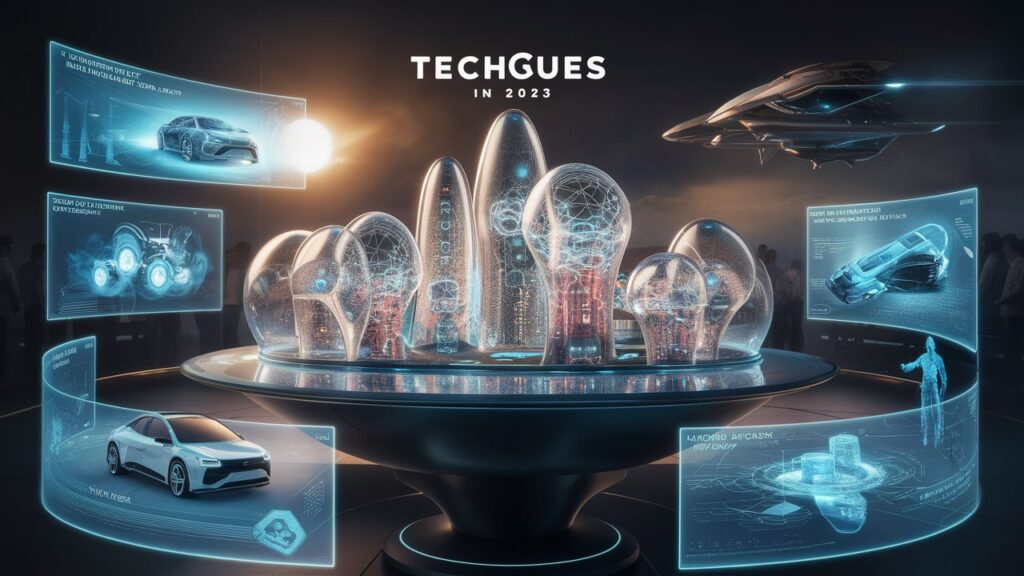Introduction
In an era defined by rapid technological advancement, Techgues has emerged as a groundbreaking concept poised to redefine how industries and individuals interact with innovation. At its core, Techgues represents the fusion of artificial intelligence (AI), predictive analytics, and human-centric design to create solutions that anticipate challenges, streamline workflows, and elevate user experiences. Whether you’re a business leader, developer, or tech enthusiast, understanding Techgues is essential to staying ahead in an increasingly competitive digital landscape. This article explores the multifaceted dimensions of Techgues, its transformative potential, and its implications for the future.
1. The Emergence of Techgues: A New Era in Tech Innovation
The term Techgues (a portmanteau of “technology” and “guess”) embodies the shift from reactive problem-solving to proactive, data-driven foresight. Traditional tech models often rely on addressing issues after they arise, but Techgues leverages machine learning algorithms and big data to predict trends, user needs, and system vulnerabilities before they become critical. For instance, industries like healthcare and logistics are already using Techgues frameworks to forecast equipment maintenance needs or optimize supply chains in real time. This paradigm shift is fueled by advancements in quantum computing and edge computing, which enable faster data processing and decentralized decision-making. By analyzing historical patterns and real-time inputs, Techgues empowers organizations to act preemptively, minimizing downtime and maximizing efficiency.
2. Core Features and Capabilities of Techgues
Techgues is not a single tool but an ecosystem of interconnected technologies. Its key features include:
- Predictive Analytics Engines: These systems process vast datasets to identify patterns and generate actionable insights. For example, retail giants use Techgues to predict consumer behavior, adjusting inventory and marketing strategies dynamically.
- AI-Driven Automation: By integrating natural language processing (NLP) and computer vision, Techgues automates complex tasks, such as customer service chatbots or quality control in manufacturing.
- Adaptive Learning Mechanisms: Unlike static algorithms, Techgues systems evolve with new data, refining their accuracy over time. This is particularly impactful in cybersecurity, where Techgues can detect novel threats by recognizing deviations from established norms.
- Human-Machine Collaboration: Techgues prioritizes user experience (UX), ensuring that its outputs are interpretable and actionable for humans. For instance, a Techgues-powered dashboard might visualize predicted sales trends in an intuitive format for executives.
These capabilities position Techgues as a bridge between raw computational power and practical, real-world applications.
3. How Techgues is Shaping Various Industries
The versatility of Techgues allows it to permeate sectors ranging from healthcare to agriculture. In healthcare, predictive models analyze patient data to flag early signs of diseases like diabetes or heart conditions, enabling preventative care. Meanwhile, agricultural Techgues tools monitor soil health and weather patterns to advise farmers on optimal planting times, reducing waste and boosting yields.
In finance, Techgues algorithms assess market volatility and customer risk profiles to guide investment strategies and fraud detection. Even creative industries benefit: media companies use Techgues to predict audience preferences, tailoring content recommendations on platforms like Netflix or Spotify. The common thread across these applications is efficiency—Techgues minimizes guesswork, allowing professionals to focus on strategic decision-making.

4. The Future Prospects of Techgues: What Lies Ahead?
As Techgues matures, its integration with augmented reality (AR) and Internet of Things (IoT) devices will unlock unprecedented possibilities. Imagine smart cities where Techgues manages traffic flow in real time or factories where machines self-diagnose errors and order replacement parts autonomously. However, challenges remain, particularly in data privacy and ethical AI. Ensuring transparency in how Techgues systems make decisions will be critical to building public trust. Additionally, the democratization of Techgues tools—making them accessible to startups and SMEs—will determine how broadly its benefits are realized.
5. Integrating Techgues into Your Business Strategy
Adopting Techgues requires a strategic approach. Begin by auditing existing workflows to identify areas where predictive insights could drive value. Partnering with Techgues developers or investing in training for in-house teams can accelerate implementation. For example, a logistics company might start by deploying Techgues to optimize delivery routes, gradually expanding to warehouse automation. Crucially, fostering a culture of data literacy ensures employees can interpret and act on Techgues-generated insights. Pilot projects and iterative testing will help mitigate risks while demonstrating ROI.
Conclusion
Techgues represents more than a technological trend—it’s a fundamental shift in how we harness data and AI to shape the future. By anticipating needs, automating complexity, and enhancing collaboration between humans and machines, Techgues empowers organizations to thrive in uncertainty. As industries continue to evolve, those who embrace Techgues will lead the charge in innovation, resilience, and sustainability. The question isn’t whether to adopt Techgues, but how quickly it can be integrated into your vision for tomorrow.
Frequently Asked Questions (FAQs)
Q1: What exactly is Techgues?
Techgues is a framework combining AI, predictive analytics, and adaptive learning to forecast trends, automate tasks, and improve decision-making across industries.
Q2: How does Techgues differ from traditional AI?
While conventional AI reacts to data, Techgues emphasizes proactive prediction and continuous learning, evolving with new inputs to refine its accuracy.
Q3: Is Techgues suitable for small businesses?
Yes. Scalable solutions and cloud-based platforms are making Techgues accessible to businesses of all sizes, particularly for tasks like customer analytics and inventory management.
Q4: What are the ethical concerns surrounding Techgues?
Key issues include data privacy, algorithmic bias, and transparency. Developers must prioritize ethical guidelines and auditability to address these challenges.
Q5: How can I start implementing Techgues?
Begin with pilot projects in high-impact areas (e.g., sales forecasting). Collaborate with tech providers and invest in team training to build foundational expertise.

